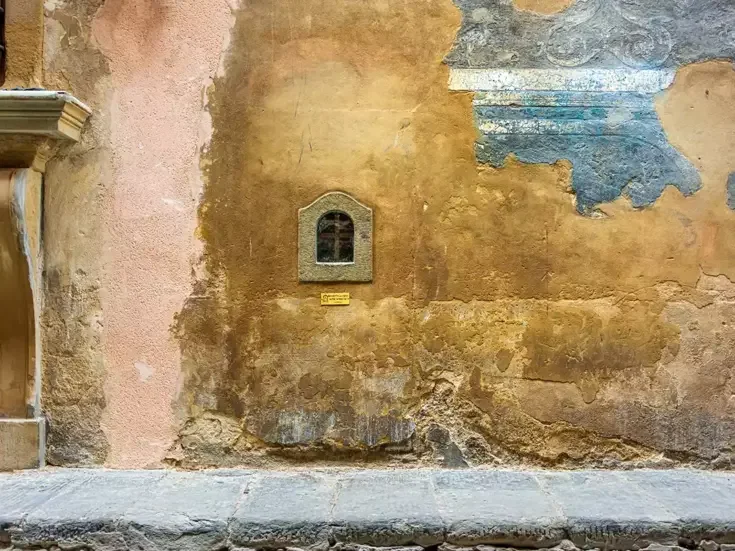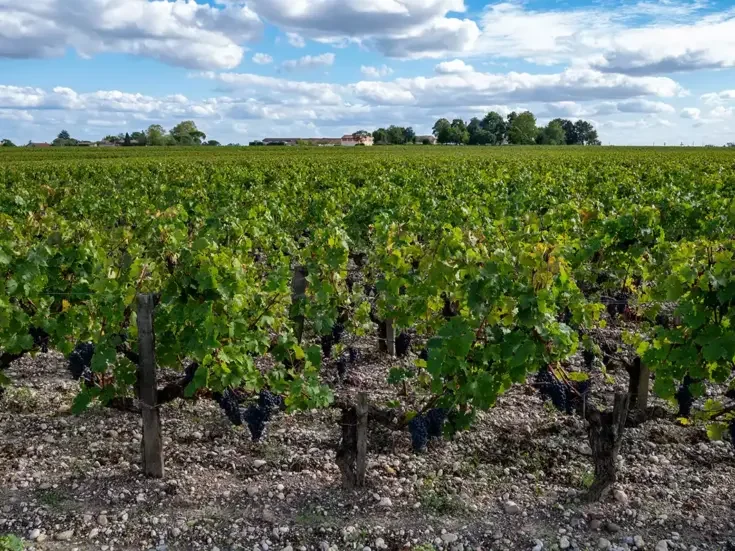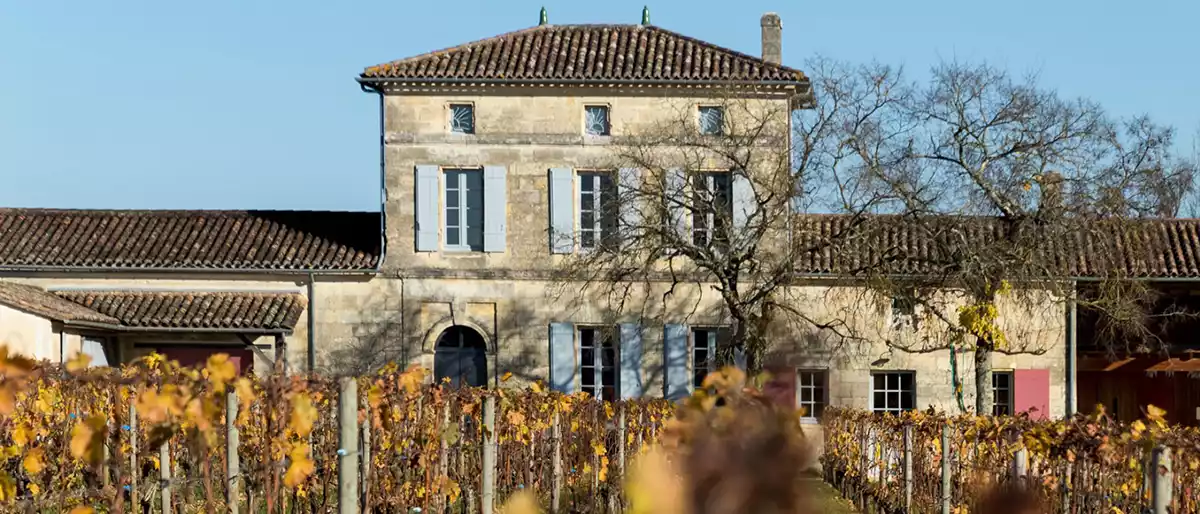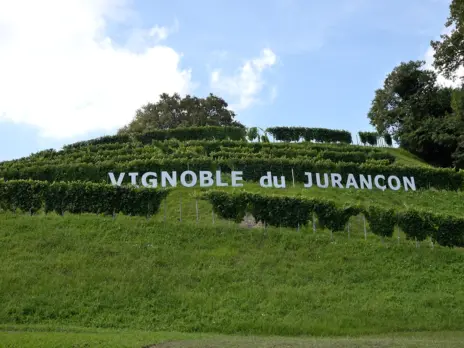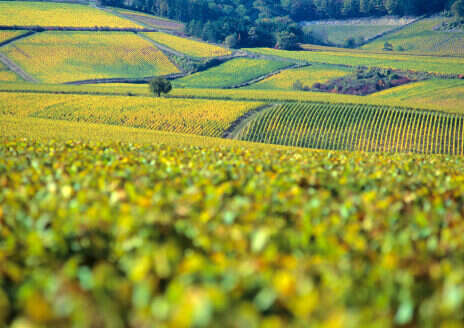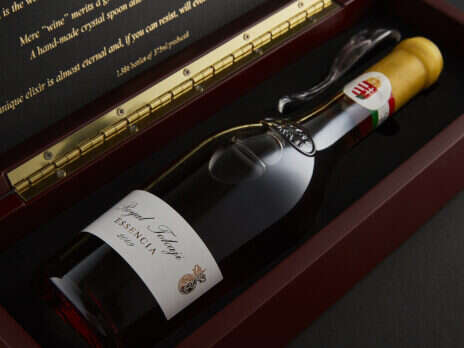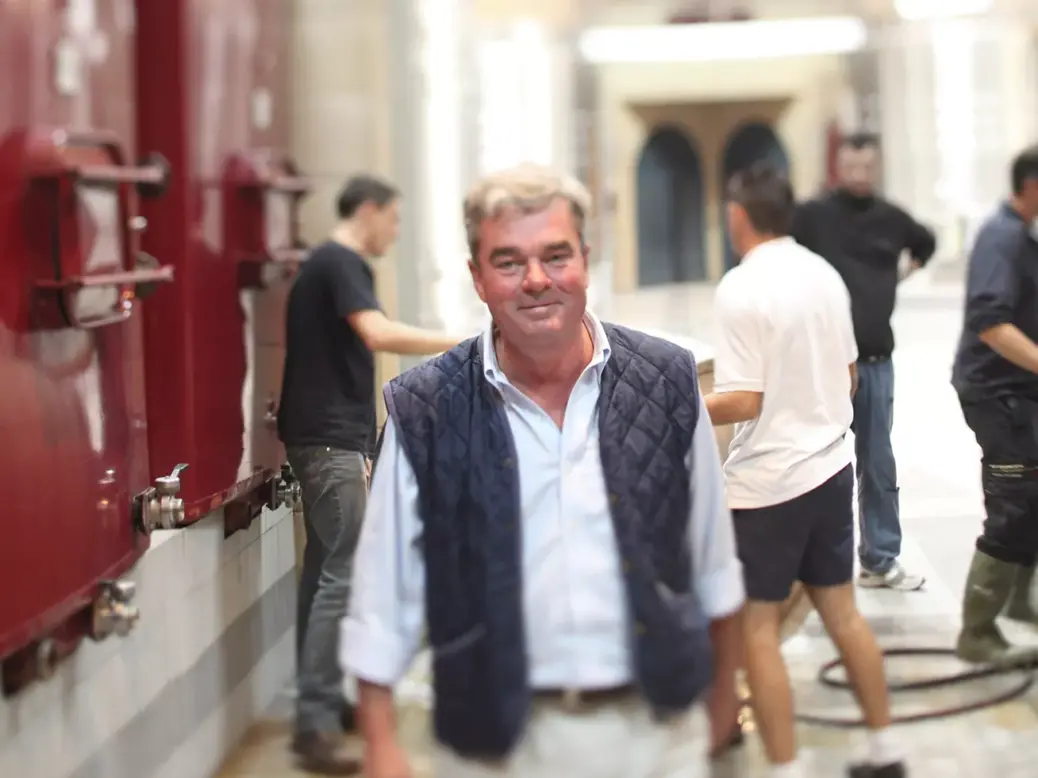
Raymond Blake discusses wine, life, and the difficulty of separating the two with Olivier Bernard, the candid and famously hospitable proprietor of Domaine de Chevalier and indefatigable promoter of all things Bordeaux.
Olivier Bernard stood, folded his arms, and addressed the 90 diners gathered for a Domaine de Chevalier wine dinner in Dublin. Without notes or microphone, he held them rapt for the next 20 minutes as he elaborated on every aspect of his wine philosophy. Eloquent and cogent, he was by turns serious and witty but always engaging. The dinner was some years ago now, but it is still talked about by those who were there. Who knew a Bordeaux château owner could be so charming?
Old stereotypes die hard, and a particularly enduring one casts the Bordeaux proprietor as an aloof, patrician character for whom consumers are a messy inconvenience, to be held at arm’s length and only engaged with if absolutely necessary. Change is in the air, however, and though some grains of truth continue to sustain the stereotype, it can’t be long before it breathes its last. When it does, much of the credit for its demise will belong to Bernard, as gifted an ambassador as Bordeaux could wish for, never mind being the most generous and welcoming of hosts when at home.
Catching the wine bug and learning on the job
The Bernard family, though well established in Bordeaux today, does not have an ancient lineage there. For that we must travel north, to Lille, where the family traded in sugar for four centuries. The Bordeaux move was as a consequence of World War I, when Olivier’s grandfather, Lucien, was hospitalized there. During that time, he met his future wife, though it was to be another half-century or more before the family became heavily involved in the wine business. First came neutral spirits, used as the base for numerous other drinks, and then brandy in the 1960s, all produced by the firm of Lucien Bernard, established in 1928 and still part of the extended Bernard family enterprise today.
Large families—Lucien was one of 11 children—“run in the family” as it were, meaning that today the entire Bernard organization has 430 family shareholders, many of whom work in various parts of the business, though none has the public profile of Olivier Bernard. He is the fifth of six children, and there was no preordained path for him when he was growing up: “I was not supposed to work in the business, because I am one of the members of this huge family, but at the same time I have been passionate about wine. When I was 18, I was already opening a wine shop in Arcachon.” That lasted four months, before military service took him into the French navy and a long tour of duty in the Indian Ocean. One of his duties was as wine steward for the officers. “I was in charge of the wine […] and that was a very nice time. I stayed 18 months, traveling all over.”
While serving in the navy, he met Rémi Edange, who has worked with him since 1986 as his right-hand man, though that barely describes the vital role Edange plays at Chevalier. Even when it comes to pithy asides, of which Bernard is a master, Edange is no slouch, once counseling that I should cracher à l’enver (“spit in reverse”) when tasting a splendid Chevalier blanc that tested the bounds of self-restraint.
After the navy, university held no appeal, so Bernard worked as an estate agent. “After three months in this business, I was already selling wine properties, and I was 22, 23. I was a young guy, I was passionate about that, and then my father, who had seen all this wine ambition behind me, told me, ‘We are buying Domaine de Chevalier.’ At that time, Domaine de Chevalier was quite small—18 hectares [44 acres]—with seven people working on the property, and even if the reputation of the domaine was already good, it was not well known all over the world.” Noting that his son had caught the wine bug, Jean Bernard astutely offered him the job of managing Chevalier, simply saying, “If you like to do it, why not?” Forty years later, the wisdom of that seeming off-hand invitation continues to impress.
Though the previous owner, Claude Ricard, had six children, none of them was interested in succeeding him at Chevalier. To smooth the transition to the new ownership, a crossover period of five years was agreed. “He welcomed me in 1983 like a boy, and we were supposed to stay five years together. We stayed six years together, and he was like my second father. I very often say that Claude was my second father for the wine, while my father was my first father for the business. It’s a lovely story, and that was a lovely time.”
Though young, Bernard did not waste time, doing a first green-harvest in 1984 and building a cold reception room for the grapes that is still in use today. He also traveled ceaselessly across the wine world, making friends wherever he went. Today, he is happy to acknowledge the generosity of those he met and to emphasize the importance of such varied exposure to myriad wines and the philosophy behind them. “I was very young when I was invited to some incredible tastings all over the world.” The experience convinced him that academic learning may not hold the secret to great winemaking. “I think the best way to learn how to make wine is to see many different things, to make your own choice. You don’t learn how to make wine in books; you learn how to make wine when you are visiting different parts of the world.”
Regardless of how he learned, the current evidence in the glass is compelling, and today Domaine de Chevalier’s reputation has never been higher, widely celebrated as a claret of grace and structure that ages into gentle splendor and can deliver remarkable satisfaction in lesser vintages. Not to be overshadowed, Chevalier blanc is a jewel, one of Bordeaux’s best—poised, precise and perky in youth, before age adds amplitude and complexity.
Learning from the south and from nature
Talking of amplitude, Bernard readily acknowledges that climate change has played its part in improving quality right across Bordeaux, enumerating six great vintages in eight years to make his point. “To be honest, global warming has made Bordeaux much better. The wines have never been as good as they are today. Never, never, never in the past. We have done ’15, ’16, ’18, ’19, ’20, ’22.” He backs this up by pointing out that for hundreds of years Bordeaux had struggled for ripeness, with particular emphasis on the dismal decade of his boyhood. Born in 1960, Bernard reels off a slew of vintages from the swinging 60s, each of which he labels a “catastrophe” before continuing into the 1970s, when “we have seen so many average wines. And I am quite polite to say ‘average.’”
But if climate change continues apace, surely the “sweet spot” Bordeaux is in now will turn torrid? What should be done? “The solution is not coming from the north. The solution is coming from the south, because in the south they know much better than you do what to do in the warm conditions or in the dry conditions. And so, we have to learn from Spain, from Italy, from Napa Valley, what to do with the global warming in Bordeaux. Very few people say that the answer to global warming is to look south.”
Considering the 2022 vintage, he adds, “Without any doubt, the warmest and the driest we have seen in Bordeaux for… perhaps forever. But the wine is incredible. The vineyard is learning to manage, to live with warm and dry weather.” (This last point echoes what several Burgundian winemakers have told me recently.) At Chevalier, the vineyard is also being helped to manage—by the introduction of organic and biodynamic practices over the past 15 years, with organic certification being achieved this year. “I really believe that if you go the way of bio and biodynamie, your vineyard will have to manage more naturally how to resist disease, because you will not assist anymore [with petrochemical products].”
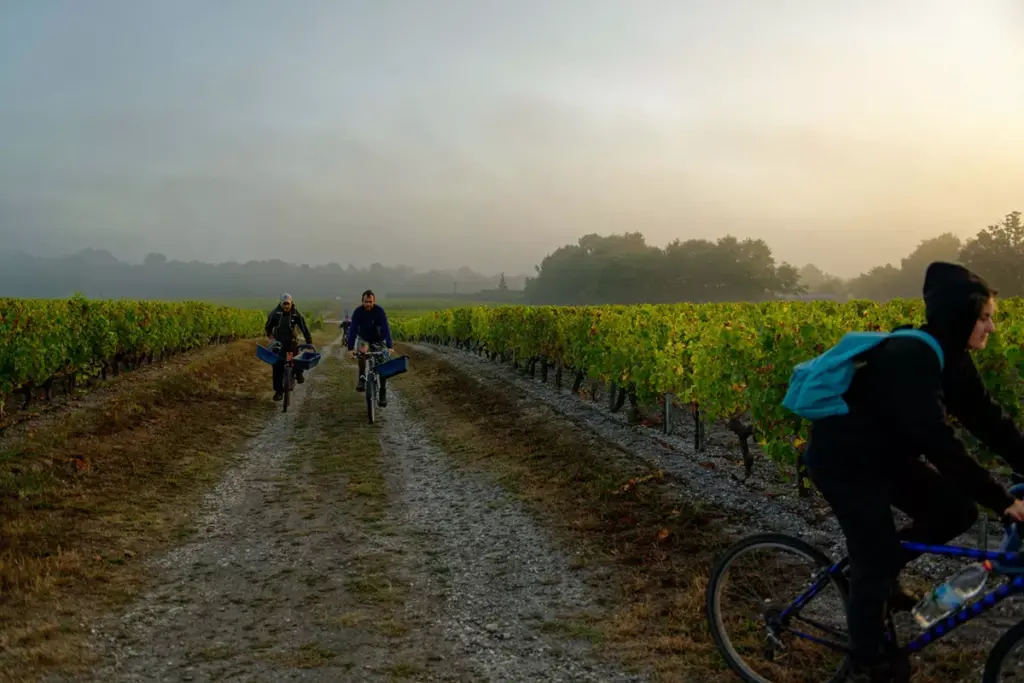
A brilliant communicator and legendary host
Bernard and his wife Anne married in 1984 and have always lived “above the shop” at Chevalier. Their sons—Adrien born in 1985, and Hugo born in 1987—are now fully involved, Adrien in charge of commercial activity and Hugo in production. Regarding his life at Chevalier, Bernard explains there is no separation between his professional and private life, making a stirring motion with his hands to show how the two are intertwined. “It is never finished because, you know, during the weekend or the evening, there is always somebody coming, staying at home, having dinner or lunch. But it’s my life—it is not two separate lives.” But he is quick to admit, “It is not always easy for my family; it was not always easy for Anne.”
It is clichéd but also true to say that his reputation as a host is legendary; an invitation to dine at Domaine de Chevalier should never be passed up. Meticulous planning will go into the meal and, most particularly, into the choice of wines. They won’t all be Chevalier, they may not all be Bordeaux, but they will all have one detail in common: The vintage date of every wine will finish with the same digit, which itself will be dictated by the final digit of the current year. Thus, guests at Chevalier this year—2023—will be served wines with vintages ending in a 3. Bernard says that it is an idea he picked up many years ago from Thierry Manoncourt at Château Figeac, and that has used it for the past 35 years, though “Anne is not always very happy with that, because this year she will drink a lot of wine ending in three.”
When asked about favorite Chevalier vintages from his four decades there, Bernard mischievously dodges the question. “The best wine of my life is the wine I will make tomorrow, there is no doubt about that.” He elaborates by reciting a litany of best-ever vintages, each one trumped in turn by an even better successor: 1989, 1998, 2001, 2005, 2009, 2010, and so on. “In 2005, we start with a new generation of wine—we start to make some great, great wine. When 2009 and 2010 arrived, I was really saying that those were the best wines of my life… Since then, we have done 2018, and ’18 is for me even better than 2010. And 2018 has been the best wine of my life for a few years. But I think that ’22 can be a challenger to ’18.” His tone is light and chatty, but it doesn’t hide his serious intent: “I promise you that in the next ten years I will do a challenger to ’22, and the day I will stop that, I have to go quickly to retire, because every year, every day in my life, I try to do something better.”
Attention to detail is his mantra, the secret—if it can be called such—that makes the difference between good wine and great wine: “A good wine will give you pleasure; a great wine will give you emotion.” With emotion, “there is something behind the wine—it is not only the thing on your palate. I really believe in the spirit of the wine. We drink wine because there is, behind the wine, this incredible capacity to make people happy.”
Such wisdoms are delivered with boundless enthusiasm and mark out Bernard as one of the wine world’s best communicators; when he is speaking publicly, he always delivers a judicious assemblage of wisdom leavened by wit. Bernard is one of the people I seek out at tastings and other events, sure to glean a perceptive insight into the wine debate du jour. In short, he is the man everybody wants to sit beside at dinner.
Bernard is a fund of quotable quotes and relies on passion and enthusiasm to get his message across, never having to resort to boring technical details or tedious facts and figures. His words stick in the memory, so the last comment belongs to him. When elaborating on the meticulous attention to detail that makes Chevalier blanc such a superb wine, Olivier Bernard counsels that the utmost attention must be taken with Sauvignon Blanc: “Be careful not to burn the wine with new oak.” And when considering the harvest, he smiles and the eyes twinkle: “You must get the harvest date absolutely correct for Sauvignon Blanc, otherwise it will taste like… Sauvignon Blanc.”
